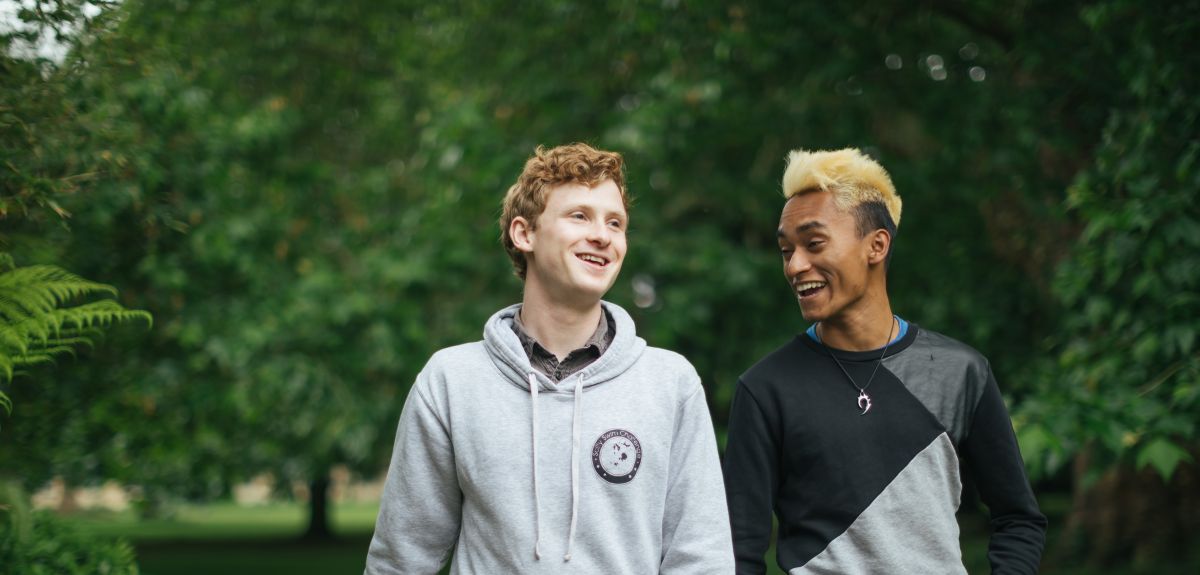
Friends Walking
Record state school admissions at Oxford as landmark access programme begins
Oxford University has announced record state school admissions for the forthcoming 2020-21 academic year.
More than 68.4% (1,899) of new undergraduates arriving for Michaelmas term in October, will be from state schools – an increase of more than 6 percentage points on last year’s admissions 62.3% (1,557) and the highest level to date.
The news comes despite the significant challenges of the educational disruption caused by the COVID-19 pandemic and the subsequent A-level results upheaval. After A-level results were initially released, the University and colleges worked hard to support applicants from disadvantaged backgrounds, who disproportionately received grades below their offers, and accepted more than 300 state school students who had missed their grades under the Ofqual algorithm. Once the Government changed the grading policy, most of these students then met their offers, while an additional 79 state school students also met their offers and were accepted.
In addition to the advance on state-school admissions, this year’s undergraduate intake shows progress on the University’s long-standing commitment to address educational inequality.
The ratio between students coming to Oxford from the parts of the UK most and least likely to progress to higher education has closed, from 10.8:1 in 2019 to 7.7:1 in 2020. The gap between students from the most and least socio-economically advantaged areas has also closed, from 4.3:1 in 2019 to 2.9:1 in 2020.
The improvements come with the first intake to the Opportunity Oxford residential programme, designed to increase offers made to students coming from schools, colleges, or neighbourhoods which do not traditionally send many students to Oxford. The programme has welcomed 100 students for this coming academic year, with three others having deferred places for 2021. The current Opportunity Oxford cohort has completed an intensive two-week residential programme at the University, ahead of the start of term. Students are receiving classes, lectures, tutorials and practical workshops which will support their transition to academic life in Oxford.
Opportunity Oxford, combined with the Foundation Oxford scheme to be rolled out next year and collegiate University outreach initiatives, is a key part of Oxford’s aim that one in four of incoming British undergraduates should be from under-represented groups by 2023.
Professor Louise Richardson, Vice-Chancellor of the University of Oxford, said: 'We are delighted by the results of the concerted efforts across the university to identify talented students from a broad range of backgrounds who are passionate about their subject.
'We are particularly pleased to have been able to welcome the inaugural class of Opportunity Oxford students, notwithstanding the constraints imposed by the pandemic.
'It is going to be a challenging year ahead for all of us but we are confident that every one of our incoming students will receive a fabulous education which will be the cornerstone for their future life and career.'
Dr Samina Khan, Director, Undergraduate Admissions and Outreach, said: 'From expanding our digital outreach offering during lockdown, to voicing and upholding concerns about the Ofqual algorithm used to award A-level grades this year, our commitment to supporting talented students of all backgrounds to achieve their Oxford dreams and potential, has I hope been apparent throughout this extraordinary period. The new academic year will see a record number of state-school students arriving at Oxford, and we could not be more delighted.'
Shathuki Perera, an Opportunity Oxford participant studying Biology, said: 'Opportunity Oxford has been exhilarating in both social and academic aspects. This program has allowed me to make friends from a variety of different colleges before the start of term which has made me less nervous about starting University.
'The academic lectures have been very thrilling and the practical assignments have allowed me to familiarise and get more comfortable with the lab equipment which will prove to be a great asset when I start my course. Being a first generation student, coming to the University of Oxford means a lot to me, and this programme has allowed me to set a solid foundation and to be well equipped for my university career.'
 Stroke Cognition Calculator could help predict thinking problems after stroke
Stroke Cognition Calculator could help predict thinking problems after stroke
 Digital tool that personalises antidepressant treatment significantly improves outcomes of people with depression
Digital tool that personalises antidepressant treatment significantly improves outcomes of people with depression
 British children are growing taller but not for the right reasons
British children are growing taller but not for the right reasons
 Expert Comment: The war in the Gulf
Expert Comment: The war in the Gulf
 International Advisory Board to strengthen global leadership in primary care
International Advisory Board to strengthen global leadership in primary care